We’re more and more convinced that the greatest restaurants are such mainly because of a question of rhythm. Let us try to explain: eating a very good dish, even an excellent dish, is not so difficult nowadays. You just need to know how to find your way in front of an offer that shows more and more styles and features; finding excellent, empathetic and professional service is already harder. But let’s take it for granted that a fine restaurant is also such because everything in the dining room runs smoothly or even wonderfully. So it’s not this the rhythm we are referring to. Instead, we’re referring to something less obvious, something that has to do with emotions: top restaurants know how to involve the diner in a story that captivates (also) because it is perfectly paced. You need a solid basic concept, like a coherent script full of ideas; then, continuing with the cinematographic metaphor, you need a narrative arc that not only has a harmonious and constant cadence but also has a defined, effective internal development, which is intended to make the progress of the meal more captivating, until the final showdown, the so-called Hollywood paradigm or Syd Field paradigm. It is sometimes said that you cannot judge a fine restaurant following the banal criteria of any other, because fine restaurants belong to the selected few that offer, more than food & wine, a real experience (this is said all too often now, it has become a label attached here and there without any distinction whatsoever). Now: when this is true, i.e. when the meal really is an experience, it is because one is captivated by a perfectly calibrated tasting-weave, in which expectations are fully matched.

All this to say that one may well be sceptical of the script-storytelling proposed by
Mauro Colagreco at
Mirazur for some time now. We’ve already reported on
the journey inspired by the relationship between heaven and earth, following the biodynamic calendar, with menus that change constantly according to the moon's passage in the constellations which influences plants, so that each day the offer is based on four different elements of the vegetable world,
fruit,
leaves,
roots and
flowers. This might sound like a brilliant gastronomic marketing stunt, but when you taste it, it is clear that there is a fully coherent narrative; that there is no search for surprise; that setting a stringent theme, as
Mauro does, is not a limit, but allows to welcome nature onto the plate with full authenticity: sincere approach, deep embrace.
This applied to the menu dedicated to flowers, we recounted on it here. It is perhaps even more so for the one featuring fruits. The fact that our lunch was preceded by a visit to the Rosemary Garden, one of the six vegetable gardens - five in Menton, one in Castillon: a total of five hectares - which provide 70-80% of the restaurant's vegetable needs, contributes to this perception of full truthfulness of the tale. 'We could do more, but we don't want to cut our relationship with the local growers who have supplied us with their excellent produce for so many years,' they explain.
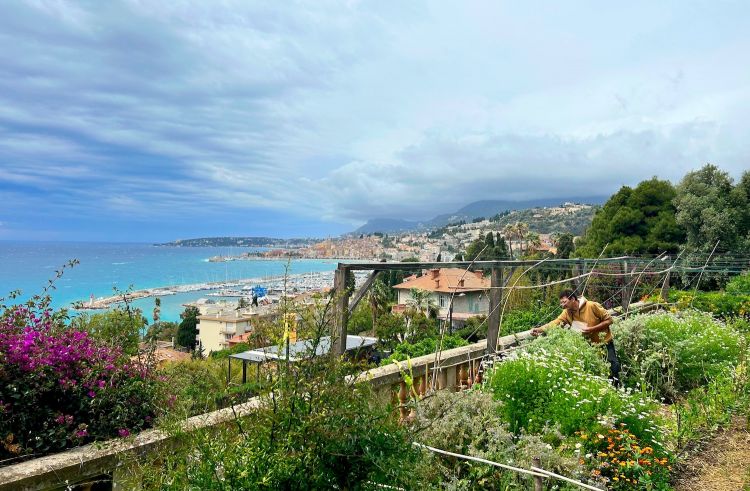
View of Menton from the gardens of the Rosemary Garden
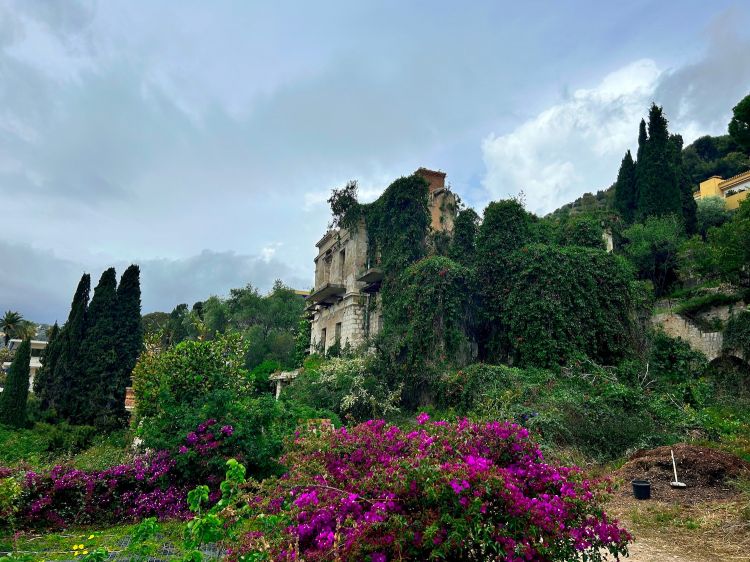
The villa - now in ruin - of the Belgian royal family in the Rosemary Garden. The plan is to turn it into a guest house of the Mirazur
The
Rosemary Garden has been created in what was once the park of a ruined late 19th-century villa that once belonged to the Belgian royal family (spoiler alert: someone told us that it may soon become a guest house for
Mirazur guests).
Colagreco himself lives in a house - simple, like so many others - on the west side of these magnificent, terraced spaces sloping towards the sea, a few hundred metres from the restaurant.
Here in the Garden everything is cultivated following permaculture and biodynamics, using natural principles, like associating species that are genetically inclined to defend the other from pests, like strawberries-onions or maize-pumpkin-beans. The garden may appear messy, which is to say it is real: there is nothing that winks at a photo opportunity, when you really cultivate. The water used to quench the thirst of the vegetation is spring water, coming from Grimaldi on the Italian side. At a certain point, in a sort of clearing between the terraces, shaded by trees, a rather worn punching ball appears hanging from a branch: the chef uses it, in the morning, to relieve stress.
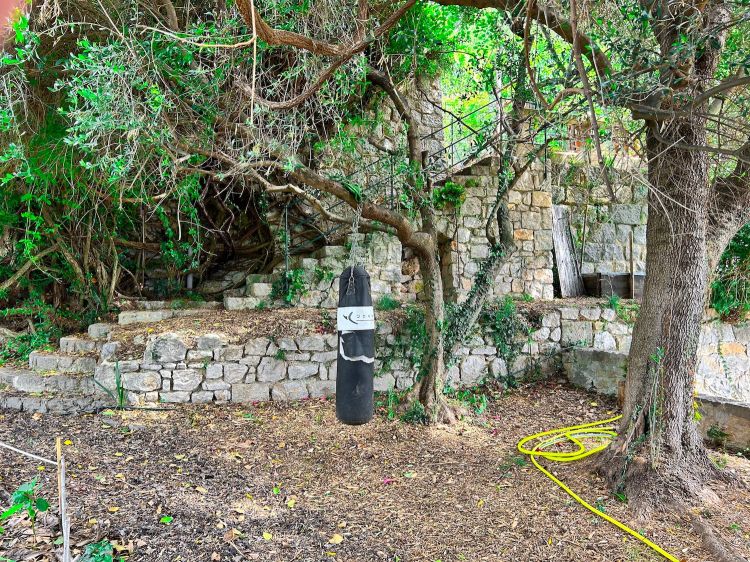
Colagreco’s punching ball
There is no stress when we sit down shortly afterwards at the table, enthralled by this sort of
prequel to our meal. Which was exceptional, all of it, with a few dishes that deserve a special mention:
Green (fresh peas, kiwi, herbs and chlorophyll cream);
Broad beans and borage (tartlet with broad beans, pistachios, robiola and borage); before that, the appetizer
Fried cube with smoked eel cream and pomelo. But above all, two masterpieces:
Courgette and hermit crab (courgette cannellone, hermit crab, courgette sauce and ajo blanco: perfection) and
Olives and pigeon (an extraordinary pigeon from the Dordogne with Taggiasche olives, Charlotte onion stuffed with pigeon, olives and cherry: perhaps the best interpretation of the greedy bird we have ever tasted).
And now all the tastings, in Tanio Liotta's photos.
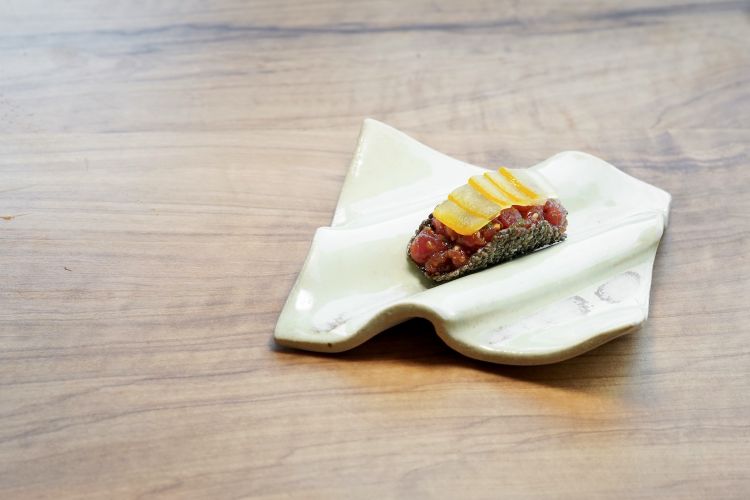
Chia seed taco with meat tartare and confit citron
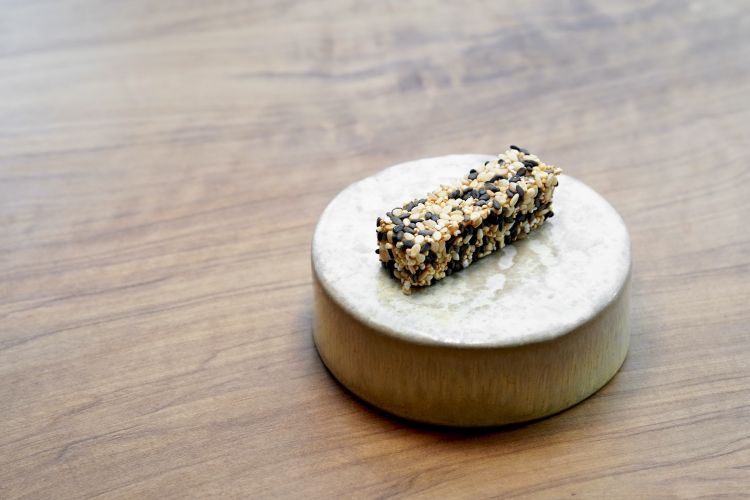
Granola (amaranth, sesame) and foie gras
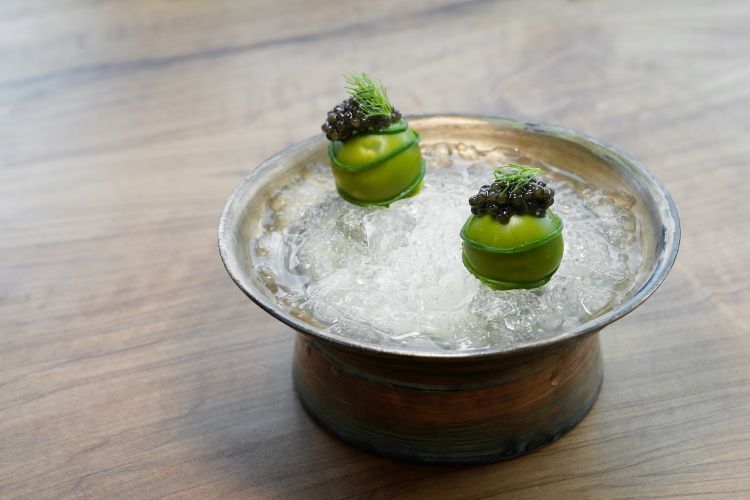
Cucumber balls with sour cream, caviar and dill
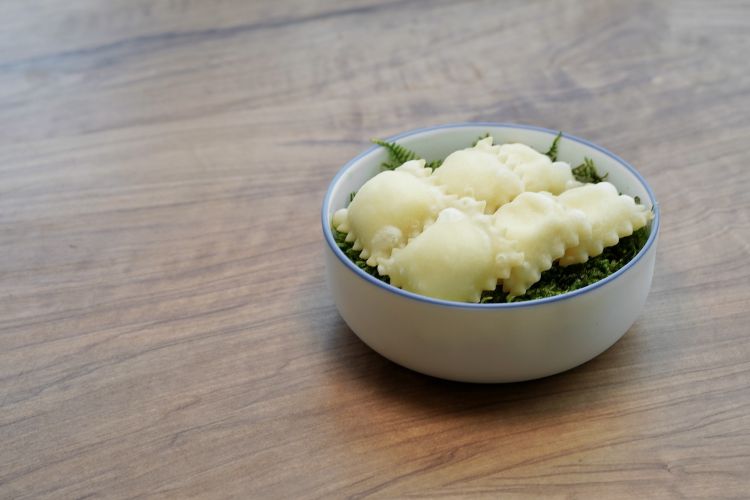
Barbajuan stuffed with courgettes, ricotta and yuzu
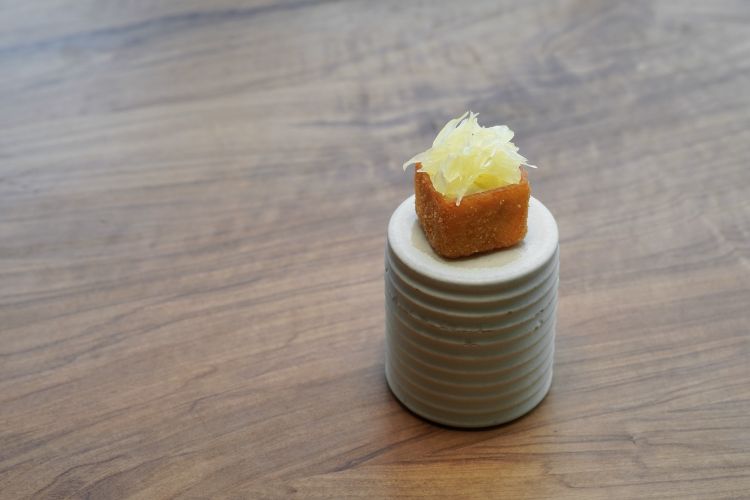
Fried cube with cream of smoked eel and pomelo
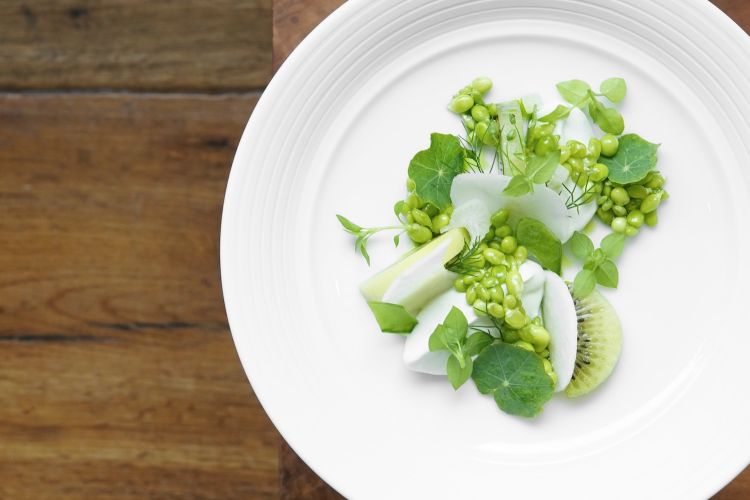
Green: fresh peas, kiwi, herbs and chlorophyll cream
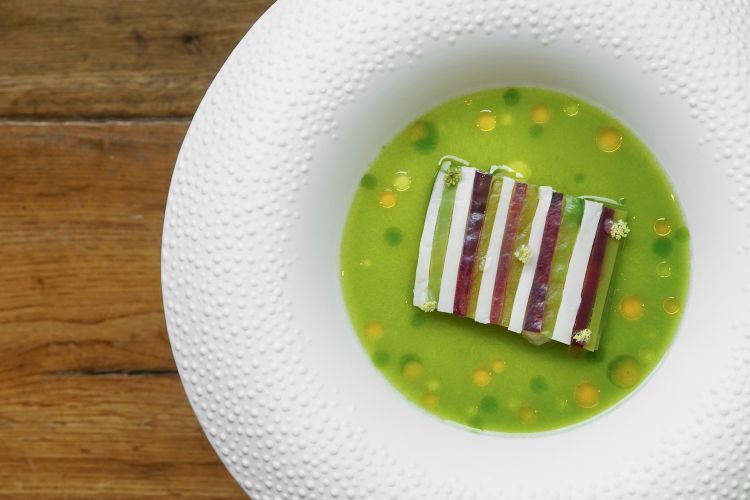
Jackdaws: green chickpeas, jackdaws, Sanremo purple prawns, Colonnata lard, a take on aguachile
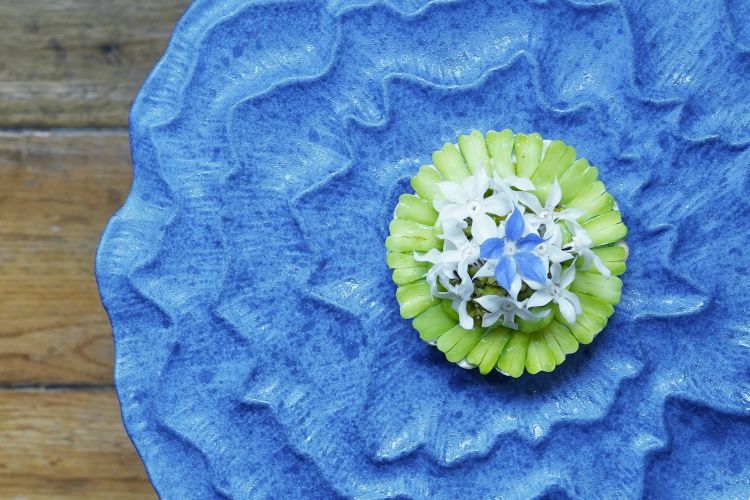
Broad beans and borage: tartlet with broad beans, pistachios, robiola and borage
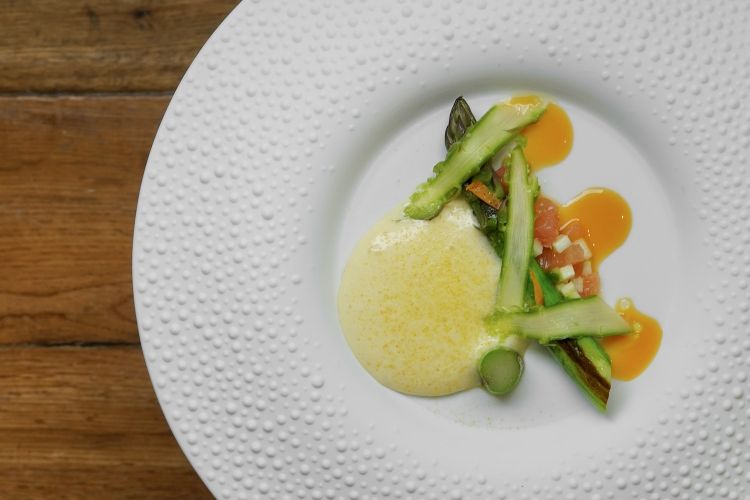
Asparagus and grapefruit: Sylvan Erhardt green asparagus, pink grapefruit hollandaise sauce, pink grapefruit reduction, bay leaf, asparagus and grapefruit tartare
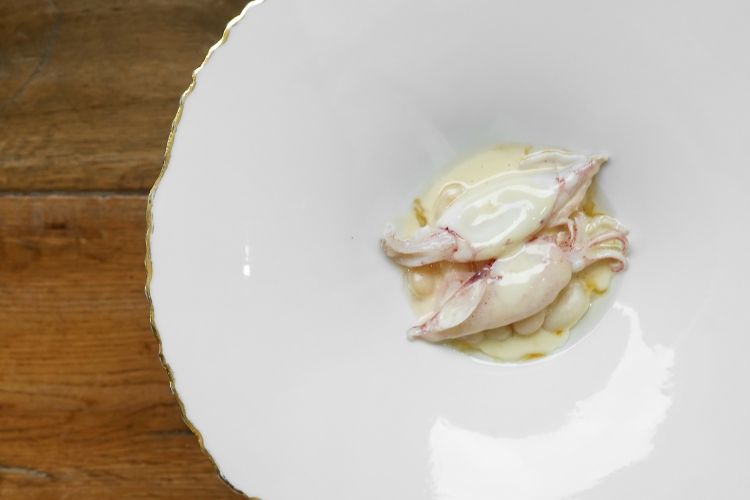
Pigna beans and baby squid from Villefranche, white sesame sauce and pork stock
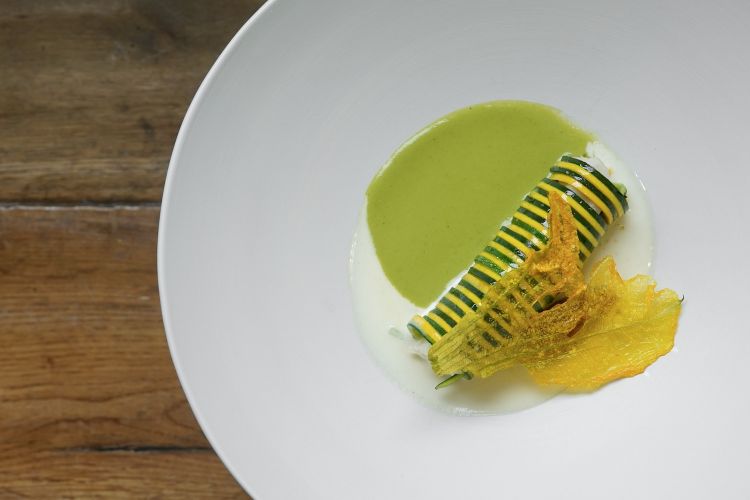
Courgette and sea bream: courgette cannelloni, sea bream, courgette sauce and ajo blanco
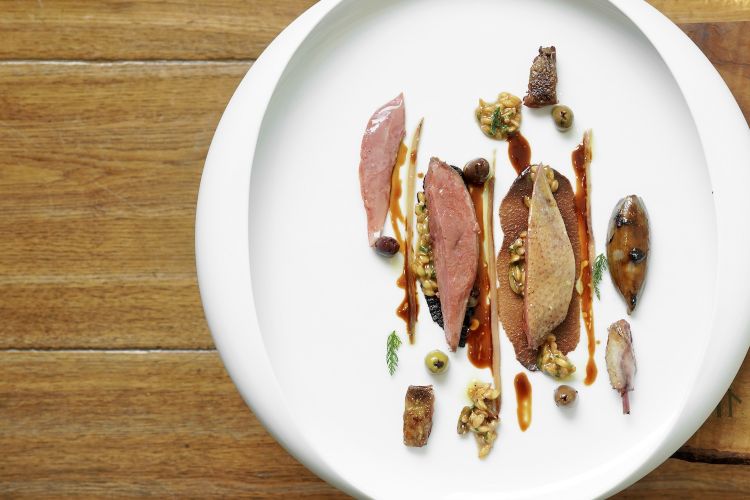
Olives and pigeon: Dordogne pigeon, Taggiasche olives, Charlotte onion stuffed with pigeon, olives and cherry

On the side, a pigeon-filled ravioli in olive broth
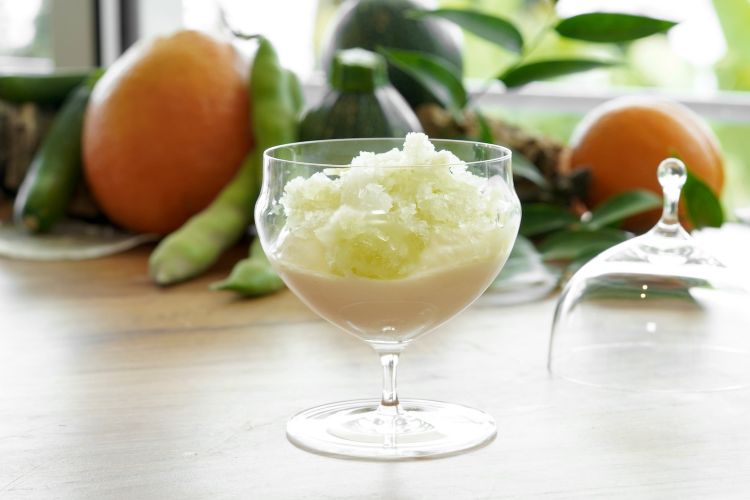
Lemon and mint, with soft sheep's cheese cream
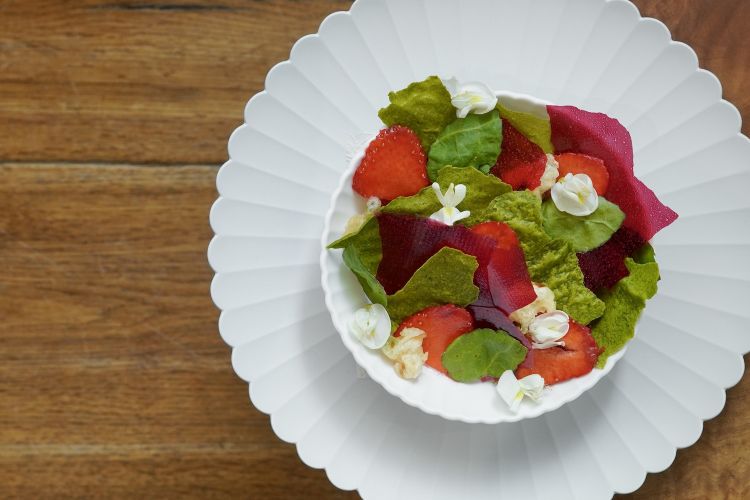
Strawberry and acacia: strawberries, fresh and tempura acacia, sorrel cream
Translated into English by Slawka G. Scarso